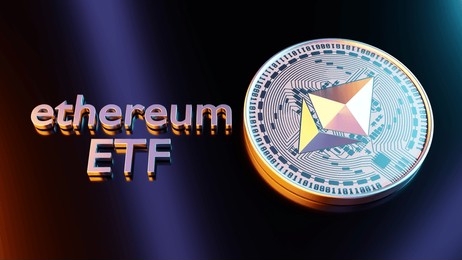The Securities and Exchange Commission (SEC) is poised to follow a similar approach to approving spot Bitcoin (BTC) exchange-traded funds (ETFs) for spot Ethereum ETFs, with the expectation that approval will be granted on the initial final deadline of May 23, as per Standard Chartered Bank analysis.
Ethereum ETFs Face Delays, Approval Remains Likely
According to a report by The Block, Geoffrey Kendrick, head of forex and digital asset research at Standard Chartered Bank, stated that they expect pending applications for spot Ethereum ETFs to be approved on May 23, which is considered the equivalent date to January 10 for Bitcoin ETFs.
Furthermore, Kendrick predicts that if Ethereum prices follow a similar trajectory to Bitcoin leading up to ETF approval, Ethereum could trade as high as $4,000 by the specified date.
Kendrick further supports the approval of spot Ethereum ETFs based on the SEC’s classification of ether as a non-security in its legal actions against crypto companies.
Additionally, the fact that Ethereum is listed as a regulated futures contract on the Chicago Mercantile Exchange (CME) adds weight to the expectation of approval.
Following the same line, Scott Johnsson, a financial lawyer, offered insights into the potential roadmap for Ethereum ETFs. Johnsson emphasized that while long-term approval for spot Ethereum ETFs is highly likely, there may be short-term delays due to ongoing regulatory actions involving Coinbase/Binance securities exchanges.
Shorter Path For ETH ETF Approvals?
Johnsson highlighted the regulatory path from a plain spot digital asset to a spot ETF offering, using Bitcoin as an example. Johnsson noted that the process for Bitcoin took seven years, involving multiple steps and disapprovals along the way.
However, Johnsson noted that the timeline for Ethereum is compressing, with applications open for both futures ETFs and spot ETFs. He suggested certain prerequisites that Johnsson believes may no longer be necessary for spot approval, such as Step 3, which requires the SEC to issue a formal 19b-4 approval for the futures ETF.
Johnsson highlighted two key factors to understand the SEC’s current approach to future approvals, including Ethereum. Firstly, he discussed the threshold question in the context of the Grayscale ruling, which focused on correlation analysis.
Secondly, Johnsson emphasized the SEC’s view, as bounded by the recent BTC approval order, which considers…
Click Here to Read the Full Original Article at NewsBTC…
























